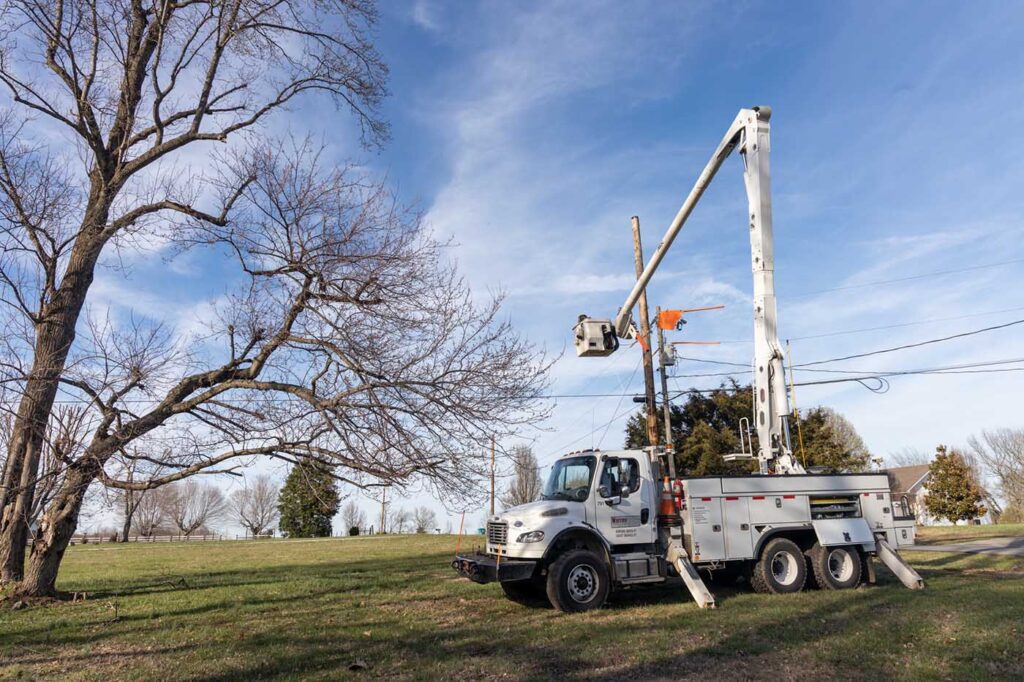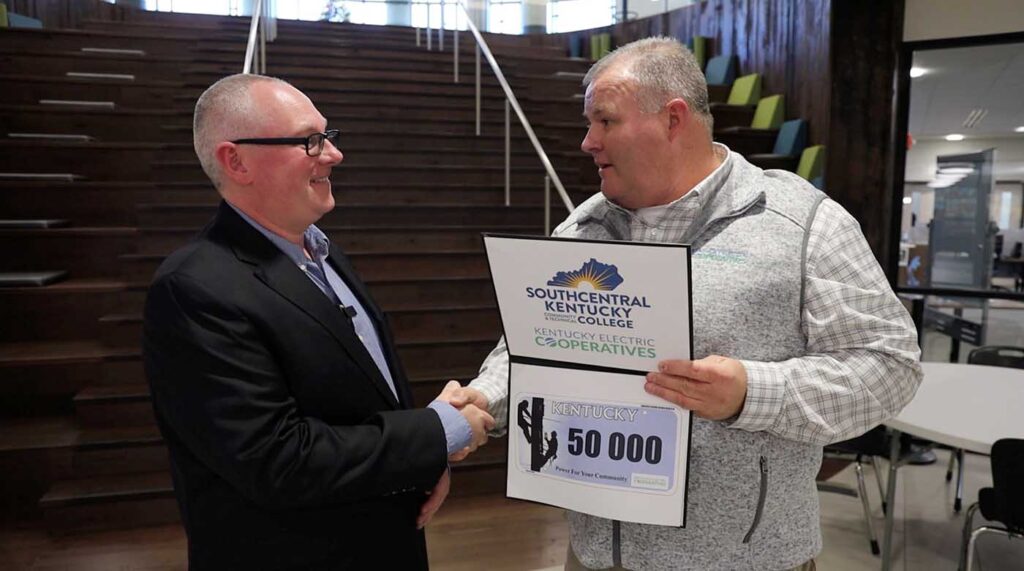
In 1990, Randy Meredith was studying at the Kentucky Advanced Technology Institute when an instructor pointed to the LEDs on his watch and foresaw a space-age future where diodes would light the world and the watch would be an all-purpose telecommunications device.
Smirks gave way to reality, and Meredith, safety and training director at Kentucky Electric Cooperatives, never forgot the lesson. Emerging technologies will take the electric utility industry in unheard-of directions.
That’s the thinking behind a new venture backed by the statewide that will enable the Kentucky Community & Technical College System to incorporate apprentice lineworker training and education into a formal associate degree program.
“This is not the whole answer, but we need to rise to the occasion for what’s coming,” said Meredith, noting that operations leaders traditionally come from lineworkers, foremen and superintendents who work their way up the job chain.
“We have a motto in the Kentucky Electric Cooperatives’ training program: ‘No one left behind,’” Meredith explained. “If someone has the drive and the commitment, we will provide all the tools we can to help them succeed. Now, add to that writing and communication skills and business training.”
Representatives of the Louisville-based statewide recently presented a $50,000 check to college officials at a ceremony at Southcentral Kentucky Community and Technical College, one of the schools that offers in-class apprentice lineworker training.
A college foundation will match the scholarship money, which comes from sales of “Power for Your Community” license plates in Kentucky earmarked through the statewide for training purposes.
That means $100,000 in scholarship support will initially be available for apprentices who complete their training and are ready to finish a college degree at one of the 16 schools in the system.
“The future of education is competency-based education. That’s what our employers need, and this helps ensure that Kentucky’s electric lineworkers receive the most world-class and safest training,” said Dr. James B. McCaslin, provost of Southcentral Kentucky Community and Technical College.

Under the program, lineworkers will receive degree credit upon completion of their four-year classroom, lab and field training based on a curriculum Kentucky has adopted from the Idaho-based Northwest Lineman College.
“A gift like this is wonderful and we’re very thrilled and thankful that you all have selected us to work with, and we are very excited to be able to apply this to our matching grant program through KCTCS and double the funds,” added Heather Rogers, vice president of resource development and SKYCTC Foundation executive director.
Approximately 50 enrollees in the Kentucky Lineman Apprenticeship Program completed their first of four yearly training modules in May 2023. In three years, that class will be the first one in line for scholarships, giving the college time to build up the program.
“Lineworker training already utilizes geometry, calculus, trigonometry, general math and algebra,” Meredith said. “They just need the general education credits.”
Joe Arnold, vice president of strategic communications at the statewide, sees the initiative as an inducement for lineworkers to pursue additional studies and an investment for the state’s 26 co-ops.
“For someone who wants to be a lineman for an entire career, this affirms it can be a career. But for someone who perhaps wants to diversify and see how their talents can be applied in other areas, you could have a CEO in the future who came out of this program,” he said.
As the degree program evolves, Meredith said it is important to remember the role of a lineworker will evolve, making the kind of education and training envisioned in the new program more important than ever. The future will hold broadband fiber deployment, antennas, microcells, and other information and technology apparatuses.
“There’s a lot of people that have the technical knowledge to work on that equipment, but they don’t have the qualifying skills to go up in that power space and work on that device,” Meredith said.
“The next generation of linemen will need both technical and qualifying skill sets. We have to give them the opportunity to take their education to the next level, today.”
Watch a video the lineworker degree program:
Steven Johnson is a contributing writer for NRECA.